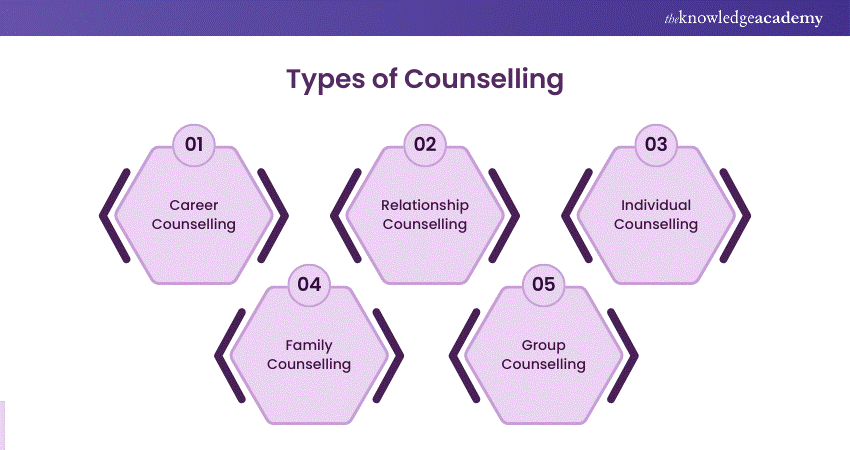Exploring the Benefits of Virtual Therapy in Modern Mental Healthcare
The surge of virtual therapy marks a considerable shift in mental health care. It supplies enhanced access, permitting people from varied histories to look for help without geographical restraints. Versatility in organizing accommodates differing way of lives, while the comfort of home can foster openness. However, the ramifications of these modifications prolong beyond mere comfort. The developing landscape of therapy increases vital inquiries concerning its lasting impacts on individual engagement and treatment end results.
Enhanced Accessibility for All
Typical therapy often offers obstacles such as geographical location and organizing conflicts, virtual therapy significantly boosts accessibility for individuals looking for psychological health and wellness support. By getting rid of the requirement for physical travel, virtual therapy allows customers from remote locations or those with mobility difficulties to connect with qualified specialists. This mode of therapy can reach underserved populations that might do not have neighborhood mental health resources, therefore addressing variations in accessibility to care. In addition, virtual systems can accommodate diverse requirements, using services in multiple languages and suiting various social backgrounds. Customers can engage with a more comprehensive range of professionals, providing them with choices that straighten with their certain needs and preferences. This increased access promotes a much more comprehensive environment, permitting people to seek aid without the stigma typically associated with in-person brows through. Generally, virtual therapy represents a substantial development in making psychological health and wellness treatment much more obtainable to all.
Versatility in Scheduling Sessions

As virtual therapy proceeds to gain traction, its intrinsic flexibility in scheduling sessions verifies to be a substantial advantage for many people. Unlike conventional in-person therapy, virtual therapy allows customers to choose session times that best fit their personal and expert dedications. This adaptability accommodates those with demanding job timetables, family members obligations, or other dedications that can make participating in physical appointments challenging.
In addition, clients can conveniently reschedule or adjust their sessions as needed, reducing the tension connected with stiff consultation systems. The schedule of various time slots throughout the week, including nights and weekend breaks, additionally improves availability. This versatility not only encourages uniformity in attendance yet additionally promotes a higher commitment to the therapeutic process. Ultimately, the flexibility in scheduling sessions represents a transformative change in psychological wellness treatment, equipping individuals to prioritize their well-being without sacrificing other elements of their lives.
Comfort of a Familiar Atmosphere
The convenience of an acquainted setting significantly boosts the performance of virtual therapy for numerous clients. Involving in therapy from the safety of their own homes allows people to really feel more secure, minimizing anxiety that might come with typical in-person sessions. This experience can help with open interaction, enabling customers to express their thoughts and sensations much more openly.
The presence of personal things and the capacity to manage their surroundings can contribute to a feeling of safety and relaxation. Customers frequently report that being in a comfy room allows them to focus extra on the healing process instead of the setting itself.
In addition, the casual nature of virtual sessions can aid dissolve barriers that may exist in a typical office setting, cultivating a deeper connection with specialists. On the whole, the comfort of familiar surroundings plays a crucial role in improving the healing experience and effectiveness for numerous individuals looking for psychological wellness assistance.
Wider Series Of Restorative Alternatives
A wider series of restorative choices appears through virtual therapy, enabling clients to accessibility numerous modalities that might not be feasible in traditional setups. This flexibility enables individuals to explore diverse approaches such as cognitive-behavioral therapy, mindfulness practices, art therapy, and even specialized treatments like trauma-informed treatment or dialectical actions therapy.
Moreover, customers can pick from a more comprehensive range of specialists, consisting of those who focus on niche locations or details populaces, boosting the probability of discovering an appropriate suit. Virtual platforms commonly offer access to group therapy sessions, support neighborhoods, and workshops that may be geographically not available or else.
This selection encourages customers to take part in their recovery procedure according to their distinct choices and demands, possibly boosting motivation and dedication to treatment. Therefore, the landscape of psychological health treatment comes to be much more comprehensive and versatile, catering to a bigger selection of individual experiences and difficulties.
Lowered Stigma Bordering Therapy
Accessing therapy through virtual systems contributes to a significant decrease in the stigma generally associated with psychological health care. By giving a discreet and exclusive atmosphere, virtual therapy permits individuals to look for help without the anxiety of being judged or identified. This anonymity allures to those who might or else be reluctant to seek in-person therapy due to societal perceptions bordering psychological health.
As the prevalence of virtual therapy boosts, it stabilizes the discussion around mental health, making it a more acceptable part of everyday life. People frequently feel more comfy reviewing their experiences on the internet, promoting openness and decreasing feelings of isolation. The accessibility of these services likewise encourages Full Article a broader market to engage with psychological the original source wellness sources, fostering a society of support rather than shame. Ultimately, the rise of virtual therapy plays a crucial function in reshaping perspectives in the direction of seeking help, contributing to an extra approving culture pertaining to mental health obstacles.
Cost-Effectiveness and Price

Minimized Session Expenses
Many people seeking psychological wellness support locate that virtual therapy considerably decreases session costs contrasted to standard in-person alternatives. The elimination of travel expenditures and pause work frequently contributes to general financial savings. In addition, several virtual specialists use affordable rates due to reduced overhead costs connected with preserving a physical workplace. This shift in expenditure enables clients to gain access to high quality psychological health and wellness services without the financial stress that may feature traditional therapy. For many, this affordability makes it possible for extra frequent sessions, which can improve therapy outcomes. As an outcome, virtual therapy not only equalizes accessibility to mental health care but likewise offers a lasting financial version that aligns with clients' budget plans, making psychological health and wellness support a lot more achievable for a wider target market.
Broadened Access Choices
While typical therapy usually provides logistical obstacles, virtual therapy greatly broadens accessibility options for people seeking psychological health treatment. By removing the requirement for travel and permitting flexible scheduling, virtual therapy suits diverse way of livings and dedications. This access is particularly useful for those in remote locations or with flexibility obstacles. Additionally, the cost-effectiveness of virtual therapy reduces monetary stress, making psychological health services much more obtainable. Lots of platforms supply tiered rates or gliding range fees, promoting price. Insurance my site provider progressively acknowledge virtual therapy, further enhancing its economic availability. Overall, virtual therapy not only broadens the extent of who can receive care however likewise addresses economic barriers, making psychological health assistance more inclusive and obtainable for all.
Boosted Connection of Care
Improved connection of care becomes a significant benefit of virtual therapy in modern psychological health treatment. This approach permits people to keep constant interaction with their specialists, despite geographical barriers or organizing disputes. virtual therapy. The adaptability of virtual sessions promotes normal check-ins, which are important for monitoring progression and adjusting therapy plans as essential
In addition, electronic wellness documents and telehealth platforms assist in smooth details sharing amongst care companies. This interconnectedness ensures that all professionals involved in a client's treatment are upgraded on treatment growths, resulting in even more worked with and effective treatments.
People usually experience minimized anxiousness and increased engagement due to the convenience of accessing therapy from acquainted atmospheres. Such availability enhances adherence to therapy programs, ultimately boosting end results - adhd counselling. To sum up, virtual therapy not only bridges gaps in psychological wellness solutions yet likewise fortifies the connection of care, a crucial component of successful therapeutic relationships
Often Asked Inquiries
Just How Does Virtual Therapy Make Sure Privacy and Personal Privacy for Clients?
The existing concern addresses the procedures virtual therapy utilizes to shield customer discretion. Making use of encrypted systems, safe and secure logins, and conformity with laws like HIPAA, virtual therapy guarantees that sensitive info remains private and inaccessible to unauthorized individuals.
Can I Switch Therapists Easily in Virtual Therapy?
Changing therapists in virtual therapy is typically uncomplicated. Clients can communicate their desire for a change with the system, enabling versatility in finding a far better match without the logistical challenges of in-person consultations.
What Innovation Do I Need for Virtual Therapy Sessions?
To take part in virtual therapy sessions, an individual commonly requires a trusted internet connection, a computer or smart device with a cam and microphone, and access to a secure video clip conferencing system defined by their specialist.

Are Virtual Therapy Sessions as Effective as In-Person Sessions?
Recent researches show that virtual therapy sessions can be just as effective as in-person sessions, relying on the individual's preferences and circumstances. Elements such as convenience and ease of access may enhance the overall therapeutic experience for some clients.
What Should I Do if I Experience Technical Issues During a Session?
If technical concerns arise throughout a session, one must steadly interact the trouble to the specialist, attempt to reconnect, or button to a backup technique. Persistence and versatility are crucial in taking care of these interruptions.